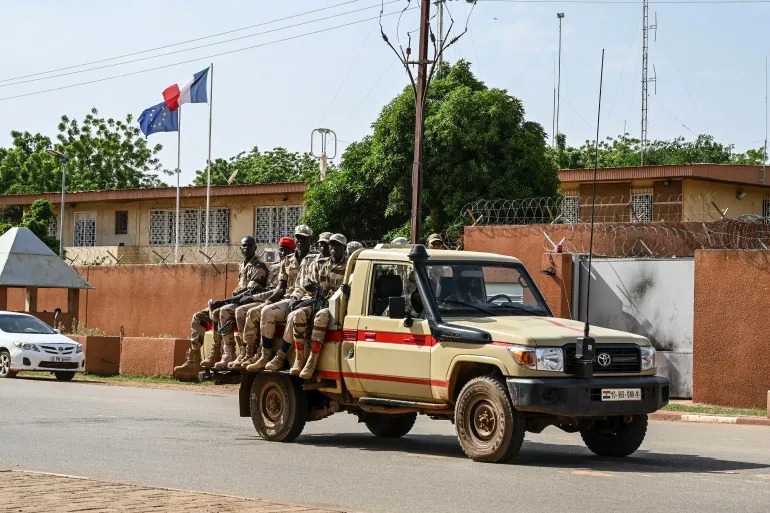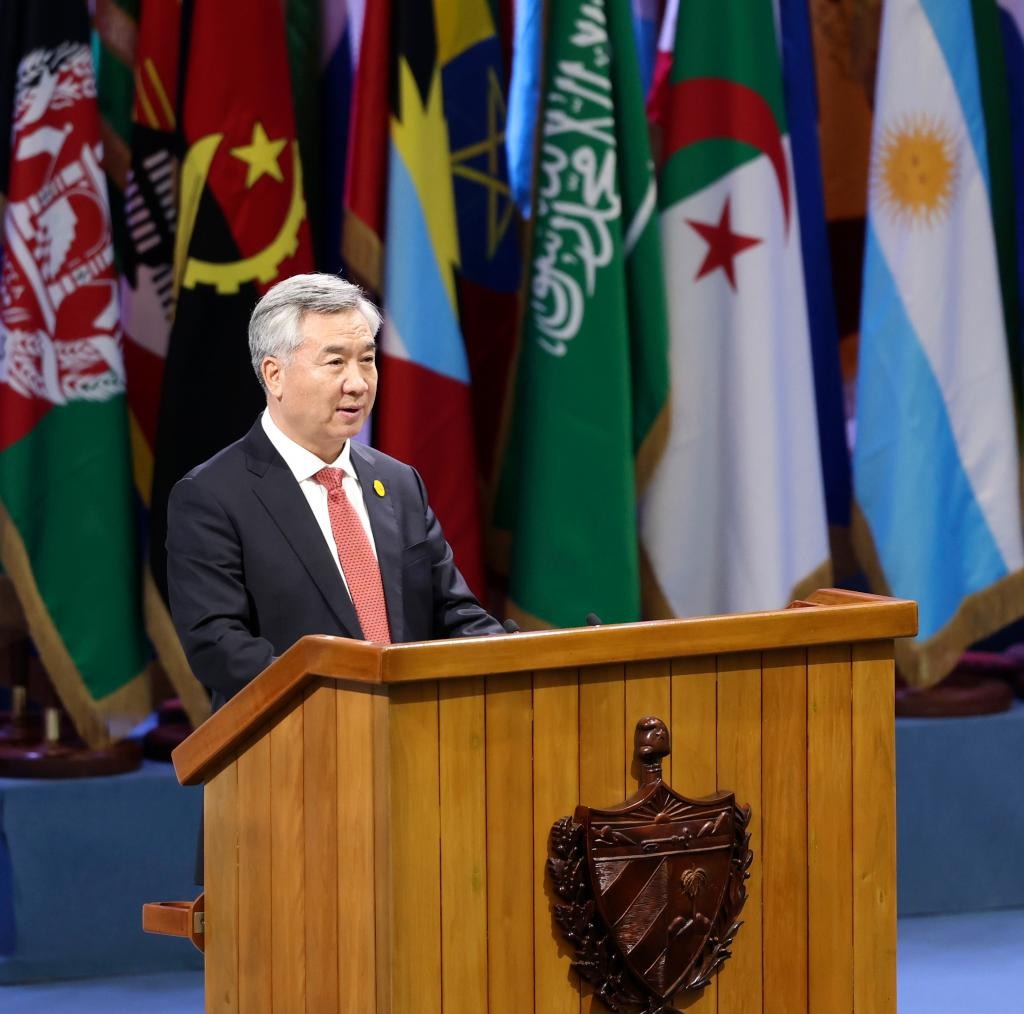President Emmanuel Macron has strongly condemned the ongoing hostage-like situation of the French ambassador to Niger, Sylvain Itte, accusing Niger’s military rulers of obstructing food deliveries to the embassy, leaving Ambassador Itte to subsist on “military rations.” The revelation of this dire situation has escalated tensions between France and Niger’s post-coup regime, with Macron vowing to act in coordination with President Mohamed Bazoum, whom he recognizes as the legitimate authority.
Macron Accuses Niger’s Military Rulers of Holding French Ambassador Hostage
In an alarming statement made in Semur-en-Auxois on Friday, President Macron revealed the precarious condition of Ambassador Sylvain Itte, stating, “As we speak, we have an ambassador and diplomatic staff who are literally being held hostage in the French embassy.” Macron directly pointed fingers at Niger’s new military rulers, alleging their interference in food deliveries to the embassy. He emphasized that Ambassador Itte had been reduced to consuming “military rations” to sustain himself.
The current situation stems from the upheaval in Niger when military leaders ousted President Mohamed Bazoum on July 26. Despite a 48-hour ultimatum issued in August for Ambassador Itte to vacate the country, he remains in place, as the French government refuses to comply with the demands of the military regime, which remains unrecognized by France. Macron underscored Ambassador Itte’s predicament, stating that he “cannot go out, he is persona non grata, and he is being refused food.”
Ongoing Standoff: French Ambassador Remains Despite Ultimatum
The refusal to withdraw Ambassador Itte has led to a continued standoff between France and Niger’s military government. France, which maintains approximately 1,500 soldiers in Niger, has made it clear that any redeployment of its troops would only be negotiated with President Bazoum, whom they acknowledge as the legitimate authority. Moreover, the European Union (EU) has echoed France’s stance, describing the military’s demand for Ambassador Itte’s removal as “a provocation.”
The impoverished Sahel region, situated south of the Sahara, has witnessed a series of coups in recent years, prompting Macron to refer to it as an “epidemic.” In addition to Niger, Mali, Burkina Faso, and Guinea have experienced military regimes replacing elected governments, creating instability and uncertainty across the region. Last week, Colonel Amadou Abdramane, a spokesperson for Niger’s coup leaders, accused France of amassing forces and equipment in West African countries, suggesting a potential “military intervention” against Niamey.
Tensions Rise as France and ECOWAS Contemplate Action in Niger
The situation in Niger has escalated to a point where diplomatic pressure is potentially giving way to military considerations. Notably, Niger faces a standoff with the Economic Community of West African States (ECOWAS), which has threatened military intervention if diplomatic efforts to reinstate President Bazoum prove futile.
As President Macron navigates this delicate diplomatic crisis, he reiterated his commitment to coordinating actions with President Bazoum, emphasizing his recognition of Bazoum as the legitimate authority in Niger. The ongoing situation underscores the volatile nature of post-coup governance in the Sahel region and the complex diplomatic challenges it presents for international actors, particularly France and the EU.
The fate of Ambassador Sylvain Itte remains uncertain as the standoff continues, while the international community closely monitors the situation, apprehensive of further escalation in this turbulent region.
















